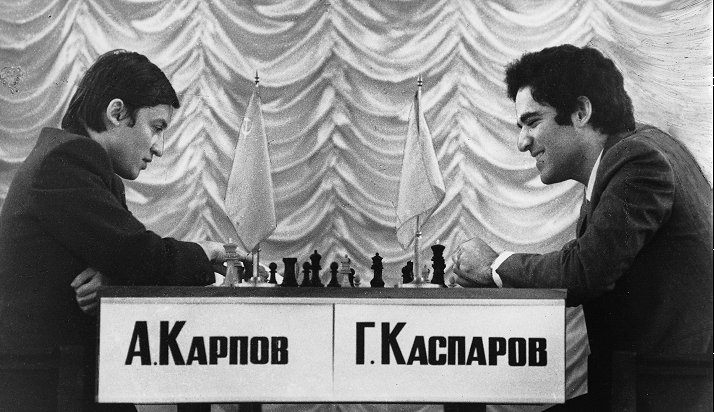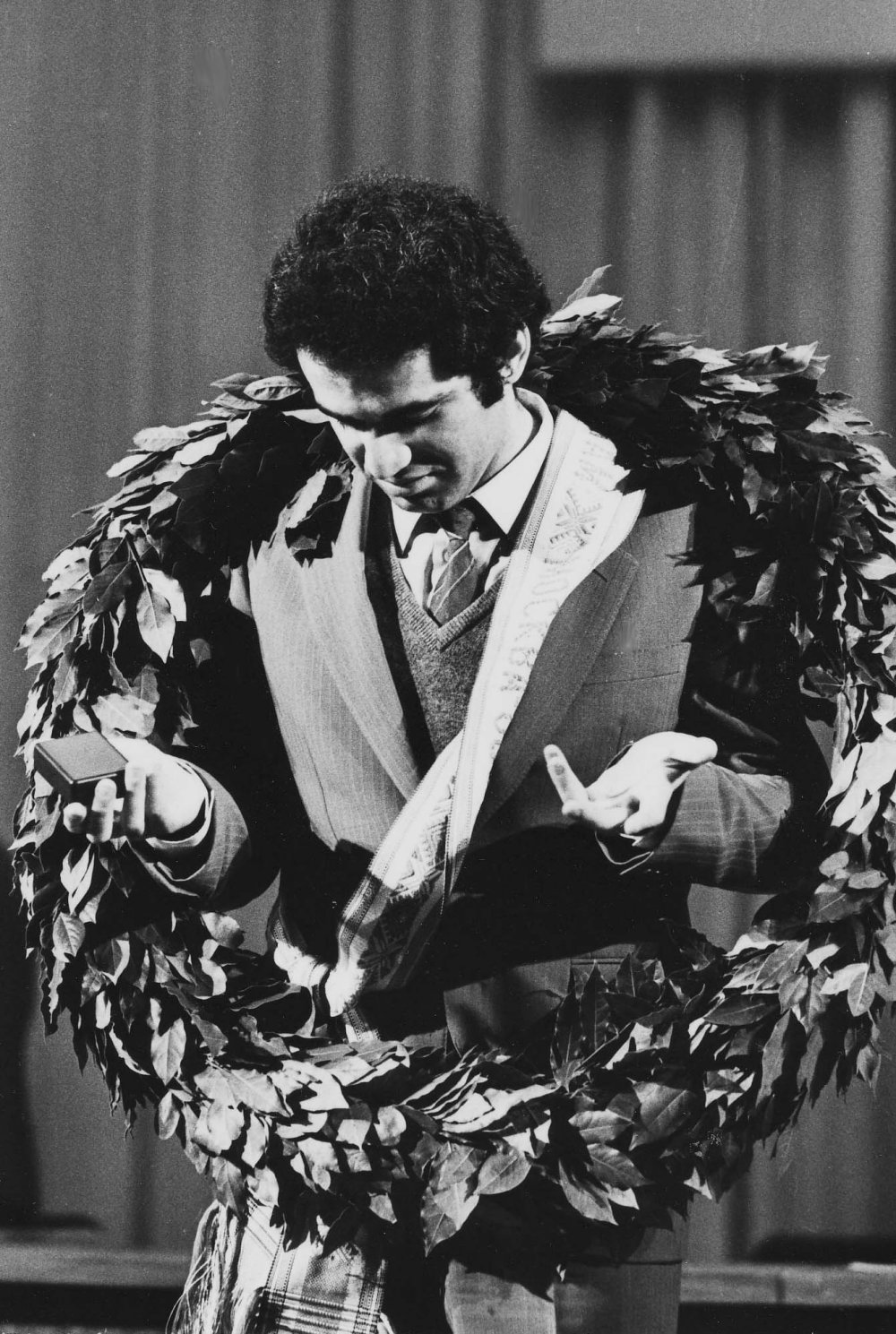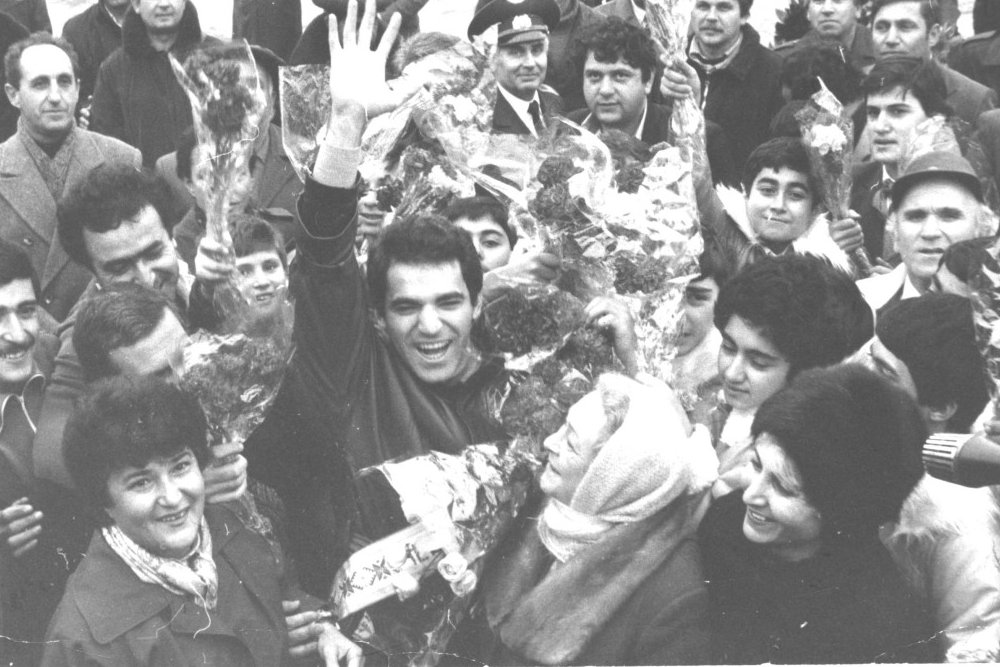Garry Kasparov's way to the top
In the 1980s the world was still divided into two political blocs, the "Eastern bloc" and the "Western world". The "Iron Curtain", the border between the "West" and the "East", ran right through the middle of Europe, right through Germany.
The chess world was also divided. The iron curtain had doors, but going through them was difficult. This also applied to news. In the West, and this also applied to chess, people often did not notice what was happening in the East, and news about chess tournaments took a long time to reach the West.
But in 1980, when Kasparov convincingly won the World Junior Championship ahead of Nigel Short, almost all Western chess fans took note of this amazing talent. In 1979, the year before, Kasparov had already won a strong grandmaster tournament in Banja Luka ahead of former World Champion Tigran Petrosian and others, though he young talent at that time did not even have an official FIDE-rating.
After becoming World Junior Champion Kasparov continued to impress and became stronger and stronger. At the Chess Olympiad in Malta in 1980, the 17-year-old scored 9.5/12 on board 4 of the winning Soviet team; in 1982 he won the strong and prestigious tournament in Bugojno, and later that year he also won the Interzonal Tournament in Moscow. Finally, here was a young player who had good chances to challenge Anatoly Karpov, World Champion since 1975, who had been dominating the chess scene for years.
Kasparov won his Candidate Matches against Beliavsky, against Kortschnoi (though only after prolonged political complications), and against Smyslov to become World Championship challenger.
Kasparov's legendary first World Championship match against Karpov began on September 10, 1984. The match was played according to the old rules, and the winner was the first player to win six games, draws did not count. Until then, Kasparov had overcome all opponents with his trademark powerful attacking style but this was not enough to win against Karpov.
The match started with two draws but then Kasparov lost the 3rd game. After that he also lost games six, seven, and nine, and with a score of 0-4 he seemed to be hopelessly behind. But now Kasparov changed his match strategy. He stopped to play for a win and instead did everything not to lose another game. This led to a series of 17 draws, some of which were short, bloodless and without any significance. However, in game 27, Karpov scored another win, and now needed only one more win to win the match and to defend his title, whereas Kasparov still had to win one single game to avoid a 0-6 rout.
Karpov, who throughout the match had tried to avoid risks, now probably should have changed his strategy and should have tried to strive for more double-edged, complicated and risky positions. But instead he continued his wait-and-see strategy but failed to make any progress – the sixth and final win just did not come. On the contrary – in game 32 Kasparov scored his first victory. However, this one decisive game was followed by another streak of 14 draws.
By now the authorities in Moscow were losing patience with the chess players, who had blocked the prominent venue for months, and moved the match to a hotel outside the city centre. And after Kasparov had won games 47 and 48 FIDE President Florencio Campomanes announced that the match was aborted without a winner – a highly controversial decision that led to protests and on-going debates, and to this day it is not clear what and who caused Campomanes to take this drastic step.
But the never-ending match caused FIDE to change the rules of the World Championship matches, and they limited the number of games to 24. If there was a 12-12 tie after 24 games, the World Champion would keep his title.
On September 3, 1985, Kasparov and Karpov began their second World Championship match, again in Moscow. But this time Kasparov was more careful and did not make the mistake of underestimating his opponent.

Kasparov enjoying himself
He won the first game, but then lost games four and five. With a win in game eleven Kasparov equaled the score, and with a stunning victory in game 16 he took the lead in the match. Kasparov then also won the 19th game and led by two points with five games to go. But Karpov hit back and won the 22nd game and now needed a draw and a win in the last two games to tie the match and to defend the title.
But after a draw in game 23, Kasparov won the 24th and final game of the match on November 9, 1985, and at the age of 22 he became the youngest World Champion in the history of chess. He kept the title for 15 years.

The new World Champion
The 24th game
Translation from German: Johannes Fischer
Links
Kasparov's bishop pair

























